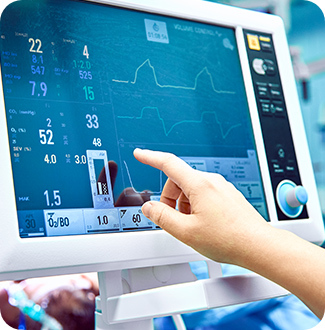




What is ECG test?
A medical test called an electrocardiogram (ECG) measures the electrical activity the heart produces when it contracts in order to identify cardiac (heart) problems. An electrocardiograph is the name of the device that records the patient's ECG.
An electrical trace is shown on a screen or piece of paper by the electrocardiograph, which records the electrical activity of the heart muscle. A medical professional then interprets this data.
Healthy heart ECGs have a specific appearance. Any cardiac rhythm irregularity or heart muscle damage can alter the electrical activity of the heart, changing the ECG's structure.
If you smoke, are overweight, have diabetes, high cholesterol, or high blood pressure, you may be at an increased risk of developing heart disease. Your doctor may also advise getting an ECG.
Why is it done?
Many common cardiac disorders can be diagnosed using an electrocardiogram, which is a painless, noninvasive method. An ECG may be used by a medical professional to establish or spot:
- abnormal heartbeats (arrhythmias)
- If chest discomfort or a heart attack are being brought on by restricted or clogged arteries in the heart (coronary artery disease)
- Whether you've previously experienced a heart attack
- how effectively a pacemaker, one of the treatments for cardiac illness, is doing
If you experience any of the following symptoms, an ECG may be necessary:
- chest pain
- bewilderment, lightheadedness, or vertigo
- pounding in the heart
- fast heartbeat
- breathing difficulty
- weakness, exhaustion, or a reduction in exercise capacity
ECG Test procedure
- You must restrain your movements while lying flat on your back on a comfortable table during the ECG test procedure.
- Electrodes, which are tiny sticky patches, are affixed to various locations on the arms, legs, and chest.
- The electrodes are attached to the ECG equipment, which converts the electrical pulses and heart rate into a wave representation that resembles a seismograph (a device that measures the magnitude of earthquakes).
- During the process, the doctor can also ask you to hold your breath for a brief period of time.
- Be reminded that during the ECG exam you must remain still as movement can affect the results.
How to book an appointment in Delhi?

Leave your name & phone number with us.

We will reach out to you to understand your requirements.

Lab details & charges will be shared with you over the call.

We'll book your test as per your preferred date and time slot.


